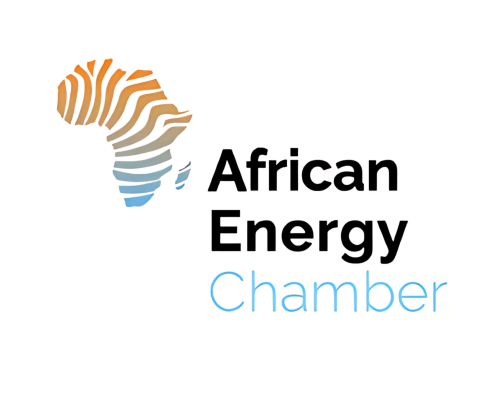
Environmental hate group Greenpeace has once again launched an attack on the African Energy Chamber (https://EnergyChamber.org/) and Africa’s energy sector, citing the continent’s efforts to accelerate development as a coordinated attack on the right to dissent. Using the example whereby a jury in North Dakota issued a landmark ruling, ordering Greenpeace to pay $660 million in damages for malicious interference with the Dakota Access Pipeline, the organization has declared that companies such as the African Energy Chamber (AEC) utilize Strategic Lawsuit Against Public Participation – SLAPP suits – to intimidate and silence critics.
Let us be clear: lawsuits like the example above are not tactical weapons to intimidate: it is a clear example of justice being served to organizations attempting to dismantle global development and community empowerment. The examples shared by Greenpeace are not “corporate weaponization of the law to dismantle civil society opposition” – it is a clear example of justice.
Greenpeace has proven time and time again that it does not in fact care about people; it operates under a mandate to attack the energy industry. The AEC has been consistent in its calls, advocating for justice, inclusive development and equitable investments. On the other hand, Greenpeace has been consistent in its attacks, targeting projects that stand to make a difference in the world. As we have said before, the organization’s methods go beyond protesting – they involve a calculated strategy of misinformation, disruption and direct interference with energy infrastructure. When faced with the consequences of their actions – in this case, $$660 million worth – the organization blames investors, they blame the justice system and they blame the energy sector.
Africa is so close to unlocking significant economic development. With 125 billion barrels of crude oil, 620 trillion cubic feet of natural gas and abundant renewable energy potential, the continent is working hard to bring tangible benefits to its communities. Africa is not pursuing ambitious projects with the aim of exporting. Africa is accelerating development with the aim of creating greater value from its oil and gas resources – resources that western nations have long-benefited from.
Organizations such as Greenpeace claim to stand on behalf of “concerned citizens,” yet they so carefully ignore the very citizens set to benefit from Africa’s oil and gas resources. We have said it time and time again, with over 600 million people living without access to electricity and over 900 million people living without access to clean cooking solutions, Africa cannot afford to leave these resources in the ground. This very statistic has led the citizens of Africa – not only corporations – to rally behind the call to “make energy poverty history.” And it is large-scale oil and gas projects that will achieve this goal. From Namibia’s Orange Basin to Libya’s Sirte to Angola’s Kwanza and Mozambique’s Rovuma, Africa’s oil and gas basins will transform the continent. Major investments stand to do more than extract resources, they create jobs, develop infrastructure, boost skills development and give hope to millions of Africans. These projects are being developed in close coordination with environmental groups.
Take the East African Crude Oil Pipeline (EACOP), a vital infrastructure project set to connect Uganda’s oilfields with Tanzania’s Port of Tanga. EACOP developer TotalEnergies has placed environmental protection and community engagement at the very heart of development. The project is being developed through specialized measures geared towards protecting the environment as well as the rights of local communities. Environmental and Social Impact Assessments were carried out in compliance with the standards of the International Finance Corporation, third-party reviews were conducted, regular engagement with impact communities is deployed. Right from the design phase of these projects, special attention has been paid to information, consultation and consensus-building with all stakeholders. Over 70,000 people were consulted for the ESIAs and more than 20,000 meetings have been held to date with the populations concerned and civil society organizations. The project is an example of how oil companies are in fact working in close partnership with environmental authorities.
Greenpeace’s attacks on the industry go beyond infrastructure. The organization strongly opposes oil and gas exploration, disrupting seismic data acquisition and drilling. Campaigns have been launched against Shell in South Africa, and as a result, the country has been unable to understand the wealth of resources it has offshore. Greenpeace is seeking donations to support its efforts to block development in South Africa, calling “To Hell with Shell.” Similarly, the organization is opposing Africa Oil Corp as it strives to unlock new development opportunities in South Africa. Greenpeace is appealing an Environmental Authorization received by Africa Oil Corp to conduct exploration. In Mozambique, Greenpeace has called for investors to stop financing vital projects, including major LNG developments that could transform southern Africa into an energy hub. By accosting funders, they have impacted developments in the Rovuma basin, leaving millions in energy poverty without a second thought. But the question is, why Africa? Greenpeace are fiercely opposing African exploration efforts but ignoring projects in other regions such as the Middle East. This is an intentional attack on the continent.
Greenpeace is right. The lawsuit against it is not an isolated event – it is a demonstration of how Greenpeace continues to blame others for the damages it causes. Organizations such as the AEC have tried again and again to work with environmental groups, but they are not interested in partnerships. They only want disruption. Sustainable development is about people, it is about inclusivity and it is about democracy. We should ask ourselves: will we allow environmental groups to dictate what Africa deserves? Will we allow these groups to attack projects, prevent growth and disrupt the livelihoods of people? Or will be make energy poverty history and transform the lives of African people?
Distributed by APO Group on behalf of African Energy Chamber.



